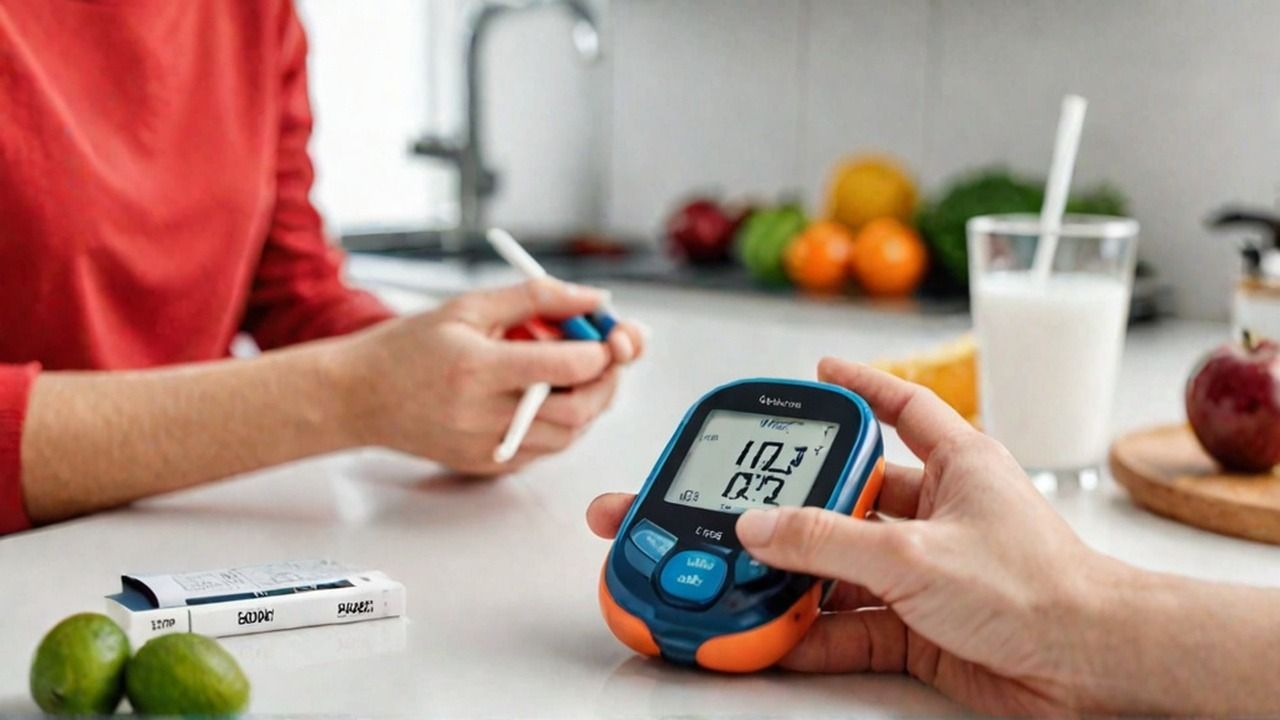11 Early Signs of Diabetes You Should Know | Vital Health Tips
VitalFiberOne Naturals Inc. • June 28, 2024
11 Early Signs of Diabetes You Should Know

Introduction
Diabetes is a chronic condition that affects how your body processes blood sugar (glucose). Early detection is crucial for managing the disease effectively and preventing complications. Here are 11 early signs of diabetes that you should be aware of.
1. Frequent Urination
One of the first signs of diabetes is frequent urination. High blood sugar levels force the kidneys to work harder to filter and absorb the excess glucose, resulting in the need to urinate more often (Verywell Health).
2. Excessive Thirst
In response to frequent urination, your body may become dehydrated, leading to an increased thirst. This cycle of excessive urination and thirst is a classic sign of diabetes (Verywell Health).
3. Extreme Hunger
Despite eating more, people with diabetes often feel extremely hungry. This happens because the cells are not getting enough glucose, signaling the body to eat more to provide the necessary energy (Verywell Health).
4. Unintended Weight Loss
Unexplained weight loss, even if you are eating normally, can be an early warning sign of diabetes. This occurs because the body starts burning fat and muscle for energy due to the lack of insulin (Verywell Health).
5. Fatigue
High blood sugar levels can make you feel tired and fatigued. This is due to the body's inability to use glucose efficiently for energy (Verywell Health).
6. Blurred Vision
High levels of blood sugar can cause the lens of the eye to swell, leading to blurred vision. This symptom can be reversed with proper management of blood sugar levels (Verywell Health).
7. Slow-Healing Sores or Frequent Infections
Diabetes can slow down the healing process and increase the risk of infections, particularly in the skin and urinary tract. This is due to impaired blood circulation and a weakened immune system (Verywell Health).
8. Tingling or Numbness
Tingling, numbness, or pain in the hands, fingers, feet, or toes can be a sign of diabetic neuropathy, which results from nerve damage caused by prolonged high blood sugar levels (Verywell Health).
9. Increased Infections
People with diabetes are more susceptible to infections due to high blood sugar levels, which can impair the immune system. Frequent urinary tract and yeast infections are common among diabetics (Verywell Health).
10. Irritability
Mood changes and irritability can be a result of fluctuating blood sugar levels. Proper management of diabetes can help stabilize mood swings (Verywell Health).
11. Darkened Skin Patches
A condition called acanthosis nigricans, characterized by dark, velvety patches of skin, can be a sign of insulin resistance, which often precedes diabetes (Verywell Health).
Conclusion
Recognizing these early signs of diabetes can lead to timely diagnosis and treatment, significantly improving your quality of life. If you experience any of these symptoms, consult a healthcare provider for proper testing and management.

Learn how to manage diabetes with ease using VitalFiberOne™, a revolutionary solution that makes living with diabetes simple and stress-free. In this blog, we'll introduce you to a fun and interactive world education game that teaches you how to control your blood sugar levels, improve your overall health, and live a happy life with diabetes. Discover the benefits of VitalFiberOne™ and how it can help you take charge of your diabetes management.

Take control of your diabetes management with Glyco Guardian, the ultimate solution for a healthier you! In this blog, we'll show you how to make managing your diabetes easy, convenient, and most importantly, FREE! With Glyco Guardian, you'll have access to a comprehensive platform that helps you track your blood sugar levels, monitor your diet, and stay on top of your medication. Say goodbye to tedious paperwork and hello to a more streamlined approach to managing your diabetes. Join us as we explore the benefits of Glyco Guardian and discover how it can make a significant difference in your life.

Are you tired of feeling sluggish and run down? Discover the secret to boosting your energy levels with Acacia Fiber! This natural superfood is packed with nutrients and prebiotics that help support a healthy gut, increase energy production, and even aid in weight management. In this article, we'll dive into the amazing benefits of Acacia Fiber and how you can incorporate it into your daily routine to feel more energized, focused, and vibrant. Say goodbye to fatigue and hello to a more energetic you!










